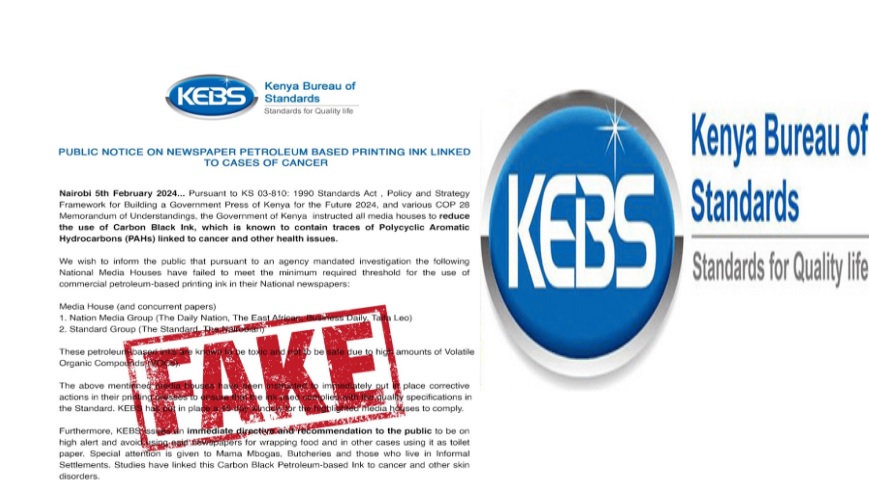The Kenya Bureau of Standards (KEBS) has emphatically refuted a circulating notice alleging a connection between newspaper ink and cancer, labeling it as "FAKE." In an official statement, KEBS clarified that the misinformation did not emanate from their organization and urged the public to dismiss it entirely.
"Public Notice on newspaper petroleum-based printing ink linked to cases of cancer," KEBS stated.
"This Notice is "FAKE" and has not originated from the Kenya Bureau of Standards KEBS."
The fraudulent notice, adorned with the KEBS logo and falsely attributed to the agency, made baseless allegations against Kenyan media houses—specifically, Nation Media Group and The Standard Group. The notice claimed that these media outlets were using unsafe, petroleum-based inks linked to cancer and other health issues.
Did you read this?
"Public Notice on newspaper petroleum-based printing ink linked to cases of cancer."
— KEBS KENYA (@KEBS_ke) February 6, 2024
This Notice is "FAKE" and has not originated from @KEBS_ke
PLEASE TAKE NOTE!!! ^JKK#StandardsForQualityLife pic.twitter.com/dwLaKlrw3a
In the midst of discussions surrounding an alleged influx of recalled baby powder and the interception of contraband dairy products worth Sh35.67 million in Nairobi, KEBS has staunchly defended its integrity.
The deceptive notice specifically targeted newspapers such as The Daily Nation, The East African, Business Daily, Taifa Leo, The Standard, and The Nairobian. Furthermore, it advised the public against using newspapers for wrapping food or as toilet paper.
The incident serves as a reminder of the increasing amount of false material available online and its ability to unnecessarily worry the public.
Important actions to stop the spread of false information include checking information with authoritative sources and being wary of claims that seem too good to be true.









